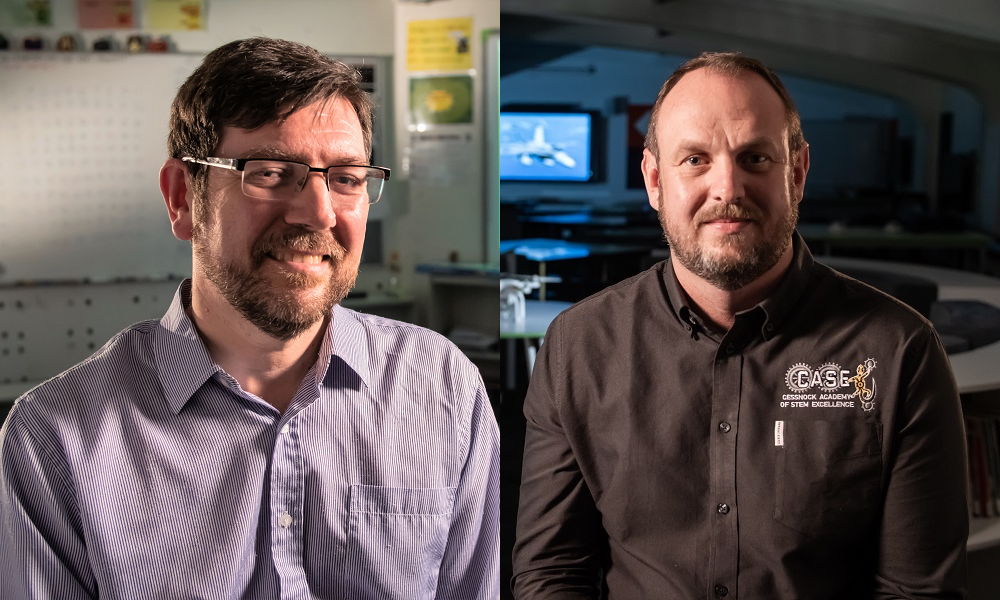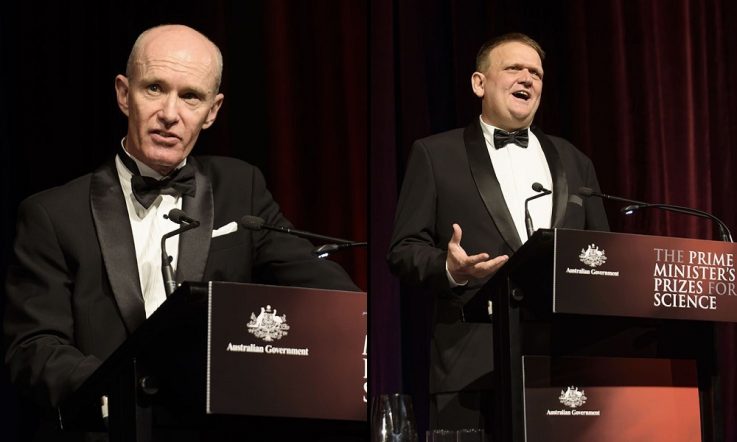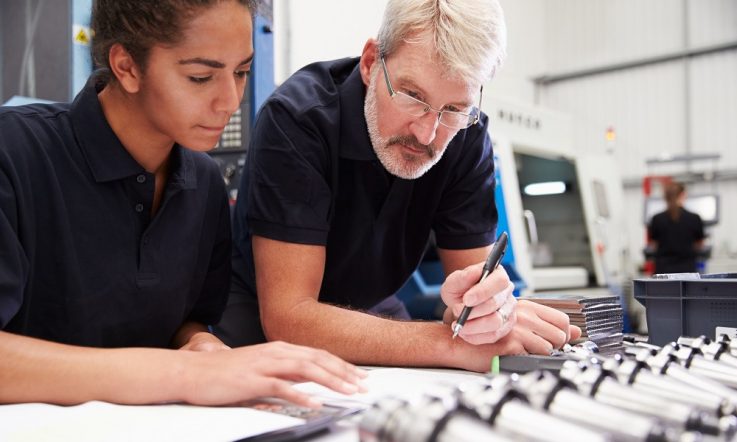Each year, the Prime Minister's Prize for Excellence in Science Teaching (Primary and Secondary) recognises two educators doing exceptional work in their school settings. The winners have just been announced at a ceremony in Canberra. Here, we find out more about the 2018 recipients.
A whole-school approach to Science
Brett Crawford is the Science Lead Teacher at Warrigal Road State School in Brisbane, where there are more than 1300 students and 50 teachers. Despite the size of the primary school, Crawford has helped every teacher bring Science into their own classroom.
‘Primary school teachers can be scared of science if they haven't had a good science experience themselves in primary school,' he explains, adding that a key part of getting teachers on board is by having them understand his belief that it the easiest subject to get a student interested in.
Crawford set aside two days per week to mentor staff members. Teachers were able to gain the knowledge to implement explicit Science teaching in their classroom – where, in their school context, some students are hearing-impaired and, for 60 per cent of students, English is an additional language. ‘So we show them how to frame a scientific inquiry that the students and the teachers can use, and I go into the classroom and demonstrate how to do a Science lesson,' he says.
The impact of this initiative is clear. Crawford says local high schools are noticing how prepared students are for Science education.
He also ensures he communicates to teachers that implementing the subject in a primary school classroom is easy. ‘I can teach a Science lesson on a $10 budget and have students understand things about chemistry. I can teach students why cyclones spin [using] a Lazy Susan and a glue stick … you can teach students about the density of gases by getting a soap bubble to float in midair, and their eyes light up because suddenly they're seeing something they didn't believe was possible.
‘Then you explain to them that it's not magic, it's science.'
A career-focused attitude towards STEM
Over at Cessnock High School in New South Wales, Dr Scott Sleap is encouraging students to consider a career in STEM (Science, Technology, Engineering and Mathematics) by building partnerships with local industries and challenging their belief that modern jobs are not for them.
Sleap is Deputy Principal (STEM) for the Cessnock High School Learning Community and has collaborated with Regional Development Australia Hunter on iSTEM, a curriculum model with a real-world industry focus on STEM subjects. Since its creation, more than 260 schools across NSW have also implemented the model. ‘Teachers have the capacity to engage and inspire our young people, and I can do that not only at this school, but across the state,' Sleap reflects.
He's also engaging Indigenous students at Cessnock High School – which make up around 22 per cent of the enrolment – through the multiple Indigenous engagement programs he's started. This has seen students complete work experience with Boeing Australia, a partnership developed mostly owing to the increasing value in aerospace jobs in the school's region. Indigenous girls, in particular, have been getting involved with Sleap's initiatives, with a group of girls making model F1 cars in partnership with engineers.
‘What really excites me about being an educator is working with young people to expand their horizons,' he says.
Since Sleap implemented iSTEAM, participating schools have reported a 19 per cent increase over seven years in Year 11 STEM subject enrolment.
For being named winners of the 2018 Prime Minister's Prize for Excellence in Science Teaching, Brett Crawford and Dr Scott Sleap each receive $50 000 in prize money. The Australian Government presents the Prizes for Science each year, acknowledging scientists, innovators and Science teachers.
As a primary school educator, how often do you perform experiments in the classroom? Brett Crawford says ‘primary school teachers can be scared of science if they haven’t had a good science experience themselves in primary school’. Think about your own experience – how has this impacted on your own classroom practice?
Dr Scott Sleap says opening students up to the real-world reality of the STEM workforce expands the horizons of young people. What are your students’ attitudes towards pursuing a career in STEM?



